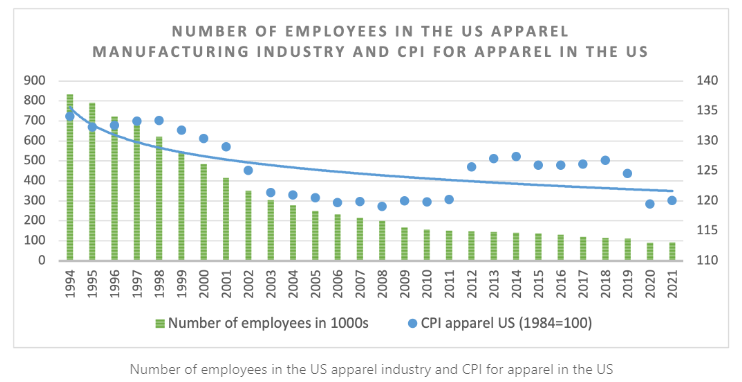What a provocative headline, isn’t it? If you thought, I would write about equal pay between women and men — you’re wrong. To question that is stupid. Plain and simple. Men and women deserve to be paid the same if their job and the outcome is the same. Full stop. If you want to discuss the topic further, we can. Just write me an e-mail at: willNeverRead@Nope.com.
The Pandemic Effect on Global Workforce Dynamics
But read on — the topic I’m discussing actually can be fought about and already is. A driver for that conversation has been, somehow, Covid19. I’m talking about equal pay for people with the (mostly) same job and (mostly) same outcome in different locations. This topic is not new and has followed me since I started my career — I have always worked with software development teams from eastern Europe or Asia while I’ve lived in Germany and Spain.
Even though I have found this intriguing for many years, I’m pretty sure it’s nothing the professional services industry, explicitly recruiting teams, had to think about too much — morally speaking. Everyone simply accepted that people in countries with a lower average income would be making less money than people in countries with higher average incomes. Western companies would appreciate that and build large offshore centers to have competitive pricing and higher profits.
But things changed when the disruptive, world-changing force of the pandemic hit our world. Covid19 has fundamentally changed how we work, or better said, where we work. During job interviews, I’m now asked what the salary for a specific position is, in general, not in a particular country. The argument is that it does not matter where the person is since we’ll collaborate through Teams, Zoom, etc. And, indeed, thousands of people from rich countries are now in low-income countries, living their best lives with disproportionally high incomes.
Is that fair and ethically correct, considering workplace shifts and that people in low-income countries are not there anymore to “bio-automate” mundane tasks, but provide a lot of value and are key elements to many companies’ success?
Classical & Keynesian Economics: A Flawed Framework?
I’ll give you one possible answer to spare you the feeling of being a hypocrite in case you don’t want to pick a side (probably because you’re a lucky first-world citizen): It does not matter.
You could simply refer to labor as a factor market like classical and Keynesian economic theories suggest and watch market dynamics do their thing (if applying Keynesian theory with government interventions if necessary). To not bore you with graphs and equations (even though I love them), I’ll summarize what that means: If you as a worker can ask for a higher salary because any company is willing to pay it, feel free to do it. On the other side, the company is free to go and get workers that demand lower salaries in low-wage countries as long as your government does not make that unattractive or illegal. Doing that is possible for most of our jobs (sorry, but we’re not this exceptional, fellow first-world citizens — if a job can be done from Ibiza, it can be done from Bangladesh as well).
Largely unfettered markets have worked miraculously for many companies that were able to lower their personnel cost and therefore increase profits. It has also meant, in many cases, that prices for products or services have dropped, which every consumer has loved, as long as the reason for it was not him/her losing his/her first-world job. The following shows how apparel prices in the US have declined because production left the US and moved to low-wage countries.

We usually hear about the negative effects of this aspect of globalization, and the apparel industry is a great example of that. But generally speaking, this development has decreased poverty and created a significant increase in wealth and living standards in many developing countries that have embraced globalization. Hard to believe, but that’s even the case in the ones we get our way too cheap t-shirts from. The side effect is that entire industries have turned their back on the western world. This has left us with many jobs in non-tradeable industries (e.g., healthcare, hospitality) and some jobs at the top of the value chain in tradeable industries. One effect of this development is that the return on education is rising (and not having a good one has become a problem).
Note: The two big differences between classical and Keynesian theory regarding the labor market are 1) Keynes argues that governments sometimes must interfere (especially in exceptional situations), as the always working invisible hand is a myth and markets don’t always regulate themselves, and 2) that wage adjustments as an effect of supply and demand as described by classical theory only work for increasing wages but not the opposite.
The Human Side of Labor Economics: Emotions and Feelings
However, classical, and Keynesian economic theories are as accurate as medieval sailors. They are mostly on the spot but sometimes way off with their predictions (looking at you, Columbus). Adding behavioral economics to what I described will give us another (far better) answer to the initial question because the job market is filled with emotions and feelings. After all, we’re human.
Being human means that the one person getting less money in a lower-income country will sometimes feel underappreciated and, in some cases, even betrayed. That might even be the case if that person is getting a disproportionally high salary compared to everyone else in that country.
This is only one side of the medal, though. Being human also means being courageous and not hiding behind economic theories to describe a policy that cannot be explained only by theory. Salaries, even though always absolute for an individual, are very relative for groups. You must consider living costs to have fair wages throughout a company and make that clear and transparent for everyone. If you don’t make that clear and reduce salaries in high-income countries, those people will feel underappreciated. If you increase all wages to the higher level, most companies will go bankrupt.
Fair, cost-of-living bound salaries will give a company the necessary flexibility to operate and give employees the treatment they deserve. It will treat people with the same job and the same outcome equally, considering their individual situation. I believe that to be fair and human.
While reading this, you could wonder why companies should still employ people in high-salary countries and why employees should work for less than what their maximal market value could be.
Behavioral economics can also provide a reasonable answer to this question. No human is homo economicus. Neither the one looking for a job nor the one hiring. There are multiple fundamental human factors playing a role in this game, like trust. Trust, a result of cultural compatibility and even geographic proximity, plays a much bigger role than you would think of. The same goes for joy at the workplace and the possibility of working towards a mission with a group of like-minded people. There are many others.
I suggest being human and applying good ol’ fairness when answering the question if equal work should always mean equal pay. Maybe also a little bit of classical and Keynesian economic theory. After all, most medieval sailors did arrive where they planned to. Not you, though, Columbus.
PS: It seems like a new player just entered the game, and companies are already shifting toward it: AI. To get my view on that, read this: The agency is dead, long live the agency!

